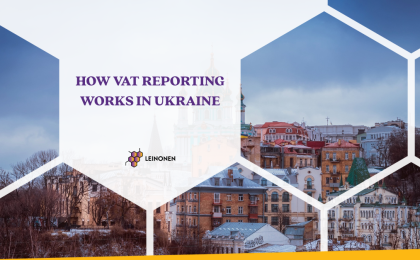The National Bank of Ukraine (NBU) introduced several currency control restrictions and limitations due to the financial crisis that started in the country in 2013. The restrictions have affected local businesses and citizens, and foreign investors as well. The aim of the restrictions has mainly been to support the local currency Hryvnia and restrict capital outflow from the country, thus helping to stabilize the economy. There are two types of restrictions:
- Restrictions without a specific term and
- Temporary restrictions introduced by resolution of the NBU for periods of up to 6 months.
In May 2016 the NBU declared a gradual elimination of the control measures introduced in the past years, and today most of them have already been cancelled. What´s more, in 7th February 2019 a new law regarding currency transactions was implemented with the nulla poena sine lege principle, meaning that anything not expressly forbidden is allowed. Currency transactions and cross-border loans for businesses have gotten a lot easier. Still, some restrictions are in place, and when planning your business in Ukraine it´s necessary to understand how they will affect your business. The main restrictions are:
1. Currency transactions within the territory of Ukraine are only allowed in the local currency Hryvnia (UAH). Exceptions to this are:
- Foreign investments into Ukraine and
- Repatriation of investment income from Ukraine.
2. The banks are conducting financial monitoring of transactions over 150,000 UAH, which amounts to approximately 6200 dollars or 5600 euros. Individuals are allowed to purchase foreign currency equivalent to 150,000 UAH per day, and businesses are required to submit supporting documentation about the nature of their payments in case they are purchasing foreign currency over 150,000 UAH equivalent for purposes of transferring it abroad or repatriating income.
3. In case foreign currency of over 10,000 euros or equivalent are taken out of the country physically, individuals need to provide supporting documentation proving the cash was withdrawn from their bank account.
Additionally, bank controls regarding export and import transactions over 150,000 UAH or equivalent are in place. Payment for export of goods has to be received according to agreement, but no later than 365 days after export. Conversely, in the case of prepayment goods have to be exported according to agreement but not later than 365 days from receipt of payment.
Besides these, there are numerous rules and measures that affect private citizens in Ukraine. In essence, companies must take into account that transactions in Ukraine are generally done only in UAH, and that transactions above 150,000 UAH may be subject to bank controls – creating a need to obtain additional documentation, thus adding an extra level of bureaucracy to your business.
Recently the NBU has widened the list of transactions, allowed to be processed using accounts of non-residents. Namely, it is allowed to credit incoming funds in UAH to accounts of non-resident individuals, in case funds are received as dividends, interest income on securities, or other income from property items that is not related to their alienation, sale, or liquidation or reduction of statutory capital. The NBU also clarified that the existing e-limit of EUR 2 million per year set on the abroad investments of resident legal entities also applies to the purchase of securities of foreign issuers and Ukrainian Eurobonds.
Since November 2019 all domestic local and foreign currency payments to be processed only with IBAN format of account. Clients should consider amending their agreements with counter-parties in the clause regarding payment details with an indication of IBAN account.




